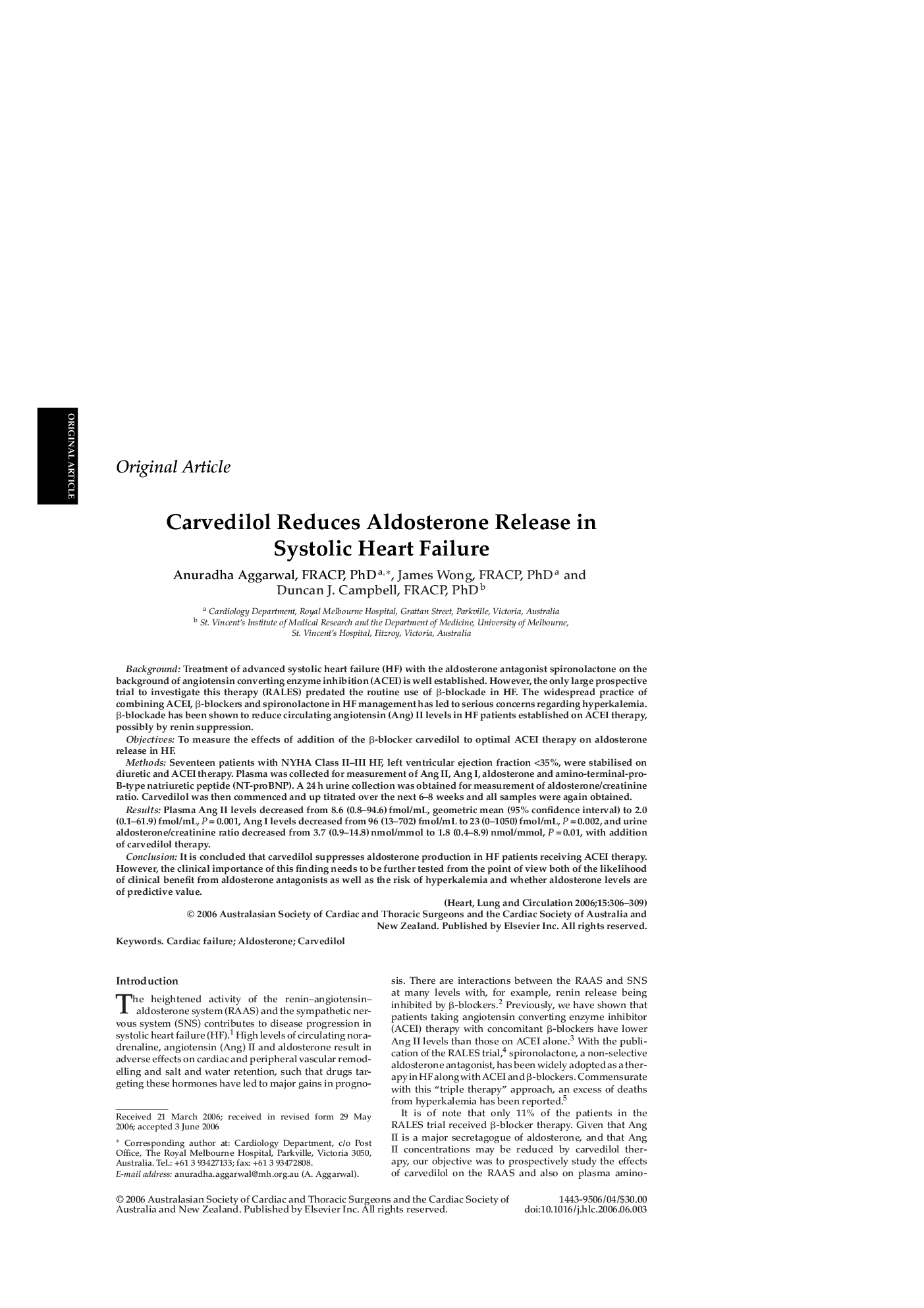| کد مقاله | کد نشریه | سال انتشار | مقاله انگلیسی | نسخه تمام متن |
|---|---|---|---|---|
| 2921638 | 1175790 | 2006 | 4 صفحه PDF | دانلود رایگان |

BackgroundTreatment of advanced systolic heart failure (HF) with the aldosterone antagonist spironolactone on the background of angiotensin converting enzyme inhibition (ACEI) is well established. However, the only large prospective trial to investigate this therapy (RALES) predated the routine use of β-blockade in HF. The widespread practice of combining ACEI, β-blockers and spironolactone in HF management has led to serious concerns regarding hyperkalemia. β-blockade has been shown to reduce circulating angiotensin (Ang) II levels in HF patients established on ACEI therapy, possibly by renin suppression.ObjectivesTo measure the effects of addition of the β-blocker carvedilol to optimal ACEI therapy on aldosterone release in HF.MethodsSeventeen patients with NYHA Class II–III HF, left ventricular ejection fraction <35%, were stabilised on diuretic and ACEI therapy. Plasma was collected for measurement of Ang II, Ang I, aldosterone and amino-terminal-pro-B-type natriuretic peptide (NT-proBNP). A 24 h urine collection was obtained for measurement of aldosterone/creatinine ratio. Carvedilol was then commenced and up titrated over the next 6–8 weeks and all samples were again obtained.ResultsPlasma Ang II levels decreased from 8.6 (0.8–94.6) fmol/mL, geometric mean (95% confidence interval) to 2.0 (0.1–61.9) fmol/mL, P = 0.001, Ang I levels decreased from 96 (13–702) fmol/mL to 23 (0–1050) fmol/mL, P = 0.002, and urine aldosterone/creatinine ratio decreased from 3.7 (0.9–14.8) nmol/mmol to 1.8 (0.4–8.9) nmol/mmol, P = 0.01, with addition of carvedilol therapy.ConclusionIt is concluded that carvedilol suppresses aldosterone production in HF patients receiving ACEI therapy. However, the clinical importance of this finding needs to be further tested from the point of view both of the likelihood of clinical benefit from aldosterone antagonists as well as the risk of hyperkalemia and whether aldosterone levels are of predictive value.
Journal: Heart, Lung and Circulation - Volume 15, Issue 5, October 2006, Pages 306–309